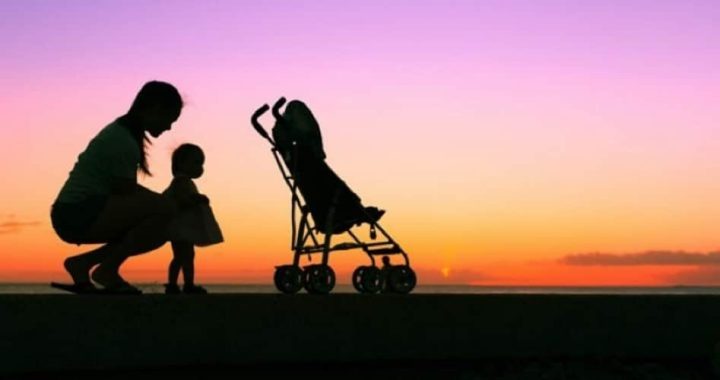
In his 1968 book, The Population Bomb, Paul Ehrlich argued that we just have “too many people” on the planet.
Despite U.S. birth rates now at a 30-year low, and despite 2016 marking the lowest U.S. birth rate on record, today’s radical environmentalists are agitating for even fewer births. They argue that with the world facing catastrophic global climate change, bringing any more children into the world will both exacerbate the alleged problem, and leave any new children facing a grim future with a planet under the curse of global warming.
Representative Alexandria Ocasio-Cortez (D-N.Y.) did not originate the global-warming movement — at 29 years of age, however, she has no doubt grown up in schools, and in a popular culture, that have indoctrinated her into the idea that the Earth is warming, and it is all a result of human industrial activity. But of course, she draws more attention to the idea, such as when she wondered aloud, “Is it OK to still have children?”
Every solution offered to the perceived problem of global climate change is some combination of a lower standard of living and increased government controls over the economy and the lives of individuals. Some have even stopped eating meat, believing cattle are contributing to global warming by expelling gas.
The Guardian recently noted that if a person really wants to fight climate change, instead of driving electric cars or riding public transportation, an environmentalist would do more for the cause of the planet by not having a child, arguing that having one fewer child would be responsible for the same level of emissions reductions as 684 adolescents who recycle, in a comprehensive way, for the rest of their lives.
The proponents of not having any children, or at least having fewer children, assert that each child increases the carbon footprint six times, adding about 60 metric tons of carbon dioxide to the atmosphere. Then, of course, every child born today will be more likely than not to have children of his or her own in a few years, making the problem even worse.
One academic, Travis Rieder, an ethicist at Johns Hopkins University, agrees that whether to have children is a very serious question. “Procreating both contributes to climate change and creates a new victim of climate change.”
Some have formed organizations to promote their view that we should not have children. One such group (which they call, in typical leftist terminology, a “safe space”) is Conceivable Future. Nathaniel Blair-Stahn, a 29-year-old member in Seattle, made a video in 2015 in which he asked the question, “Do I really want to bring a child into this world?” arguing that “we’re going to use up everything in the world until there is nothing left.”
How widespread is this idea that not having children can save the planet? According to a recent poll conducted for Business Week, 30 percent of Americans agree that global climate change is something that should be considered before having children. (Of course, if no human had any children today, in a century or so we might still have a planet, but no humans would occupy it, leaving it to the squirrels, the chipmunks, and the fish in the deep blue sea.)
In short, we can expect this push to not have children or at least have fewer children to be found in schools starting in pre-school all the way through graduate school, on the movie screens and TV sets, and in a steady stream of “news” articles.
This thinking is certainly not new. Globalist-minded elites have been pushing the idea for several years. In 1969, President Richard Nixon said in a preface to “The Report of the Commission on Population Growth and the American Future” (popularly known as the Rockefeller Commission, after its chairman, Lawrence Rockefeller, brother of David and Nelson Rockefeller), “One of the most serious challenges to human destiny in the last third of this [the 20th] century will be the growth of the population. Whether man’s response to that challenge will be a cause for pride or for despair in the year 2000 will depend very much on what we do today.”
The Rockefeller Commission recommended several things, including “the liberalization of state abortion laws along the lines of the New York State statute.” This was three years before the U.S. Supreme Court somehow found a “right” to abortion in the U.S. Constitution — which had gone undetected from the days of James Madison to 1973.
But abortion on demand has always been inextricably tied to the idea of supposedly saving the planet through a reduced population. The advocates of both make this very clear. Writing in Motherboard in July 2017, Kate Lunau said, “The empowerment of women, access to birth control (including abortion), and female education are inextricably tied to climate change, and will play a huge part in how we deal with it in the years to come.”
In the same publication, Kaleigh Rogers penned an article, “Even the Rainforest Is Better Off When Women Have Reproductive Healthcare.” Reproductive healthcare is, of course, a euphemism for abortion.
The message is unmistakable. Instead of taking public transit, forgoing air travel, or giving up a steak, you can do more for the planet by either not having a child, or if you get pregnant, just having an abortion. Surely Captain Planet would approve.
Photo: kieferpix / iStock / Getty Images Plus



